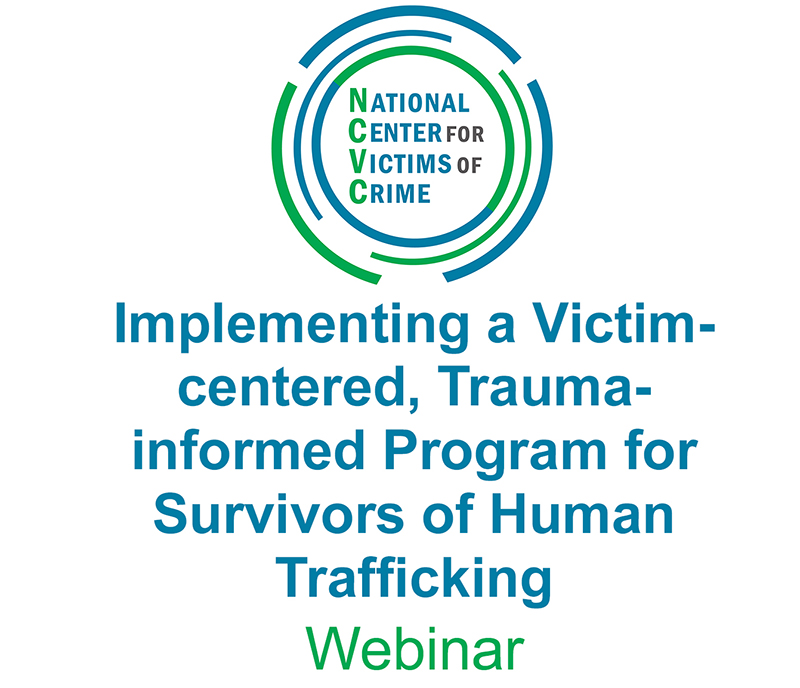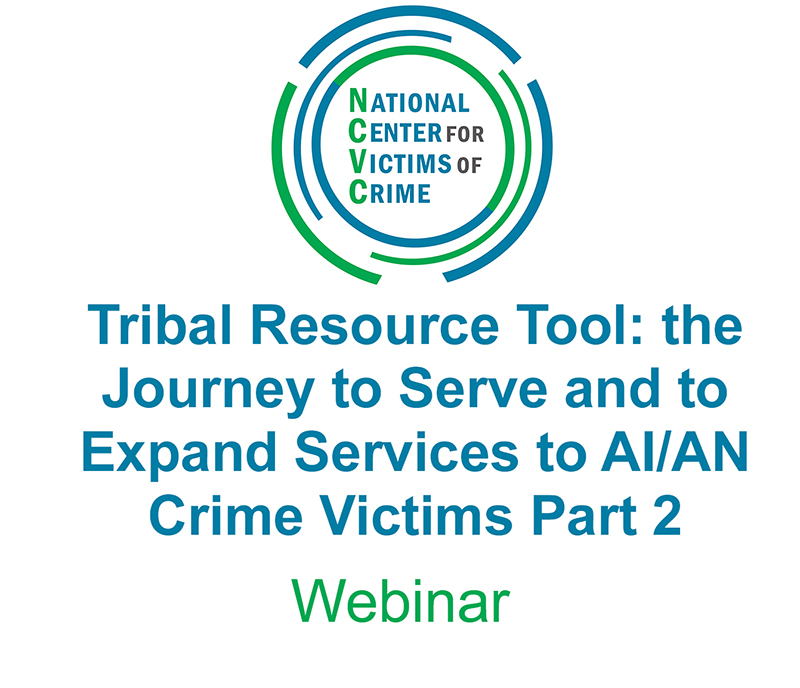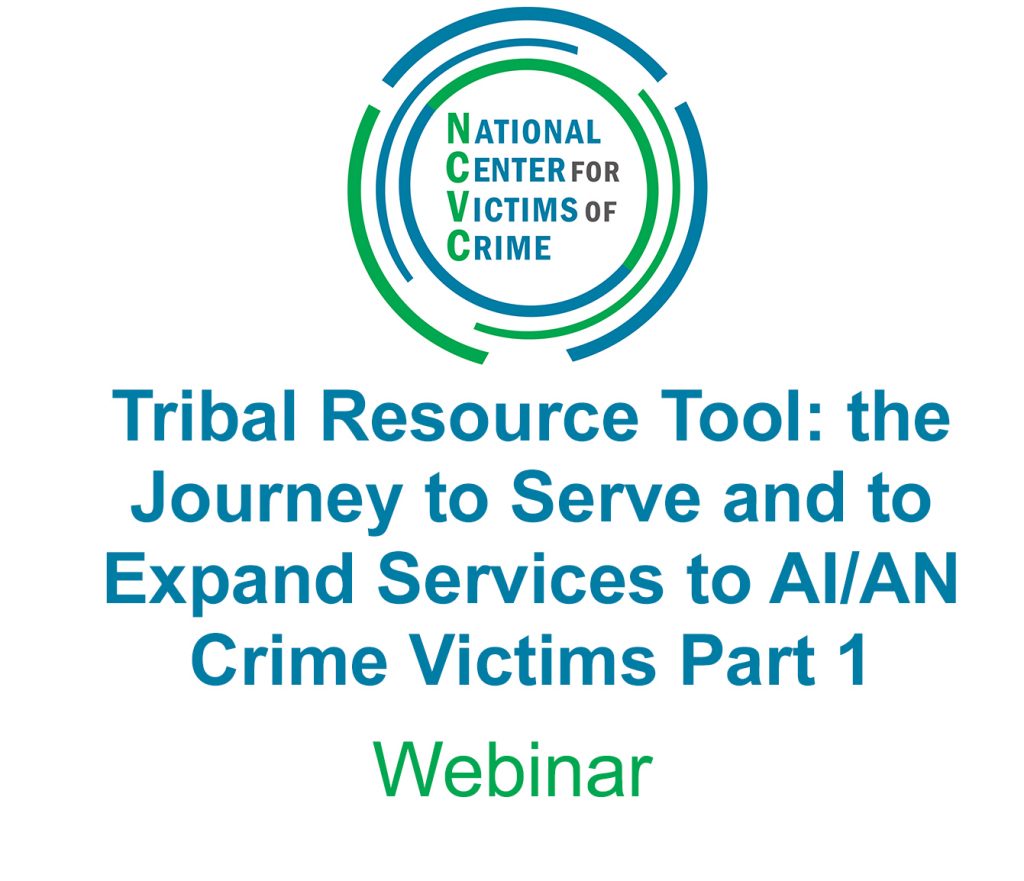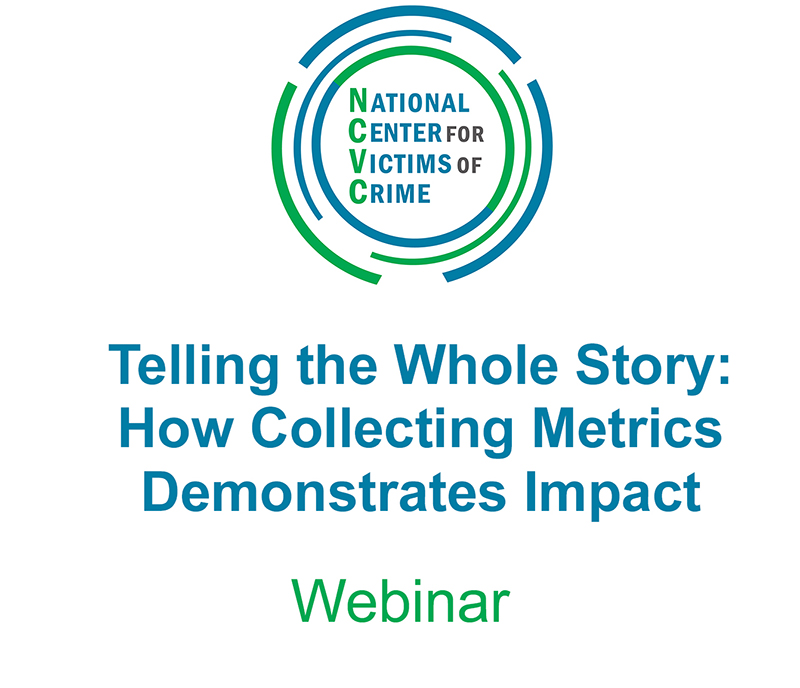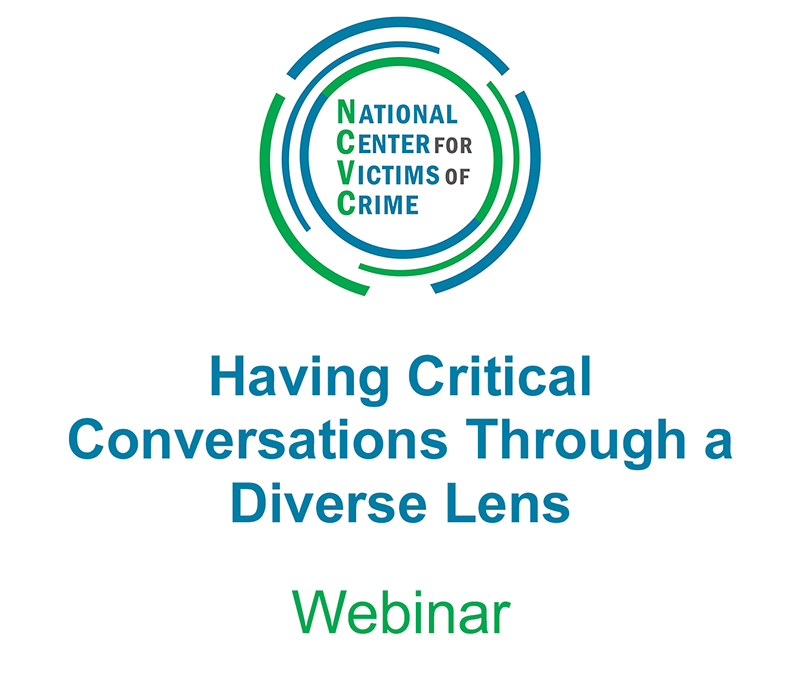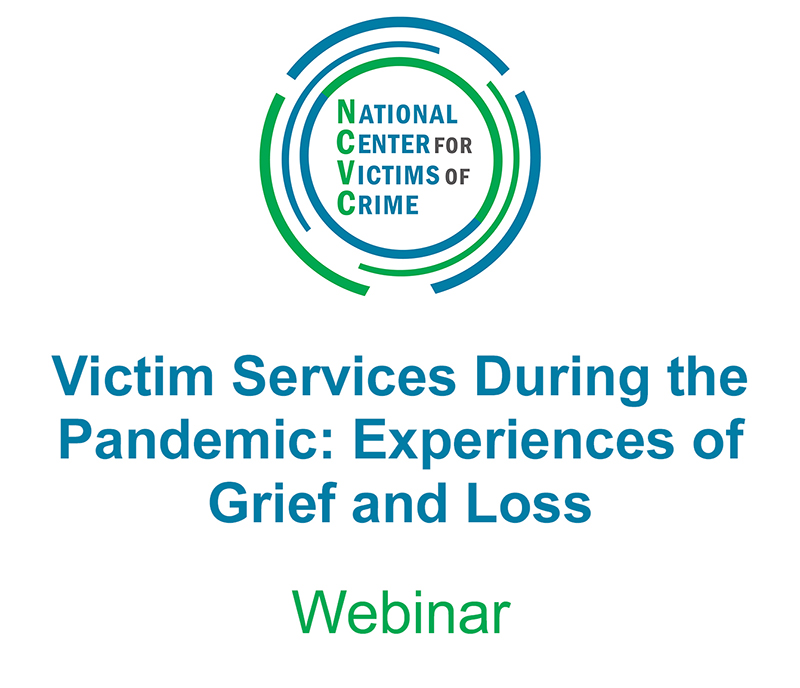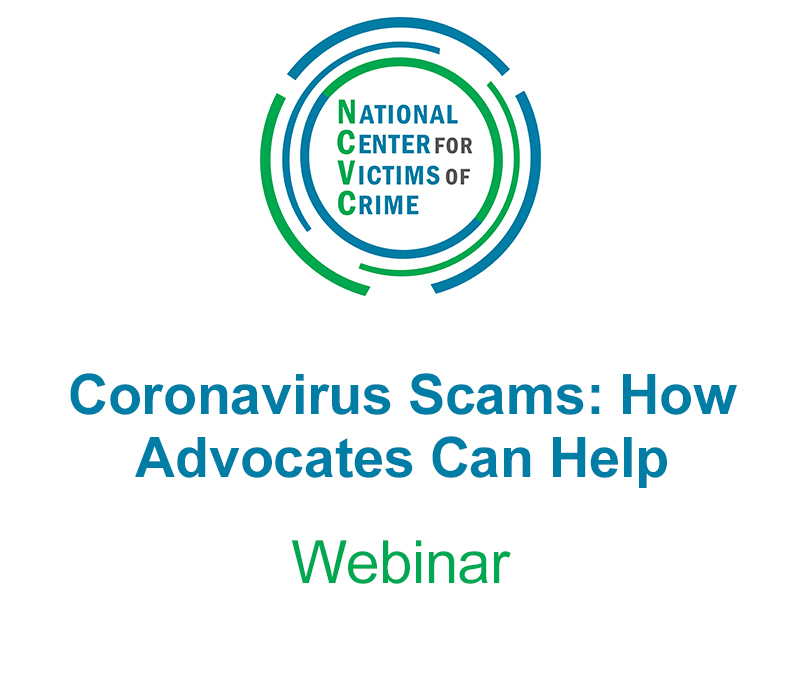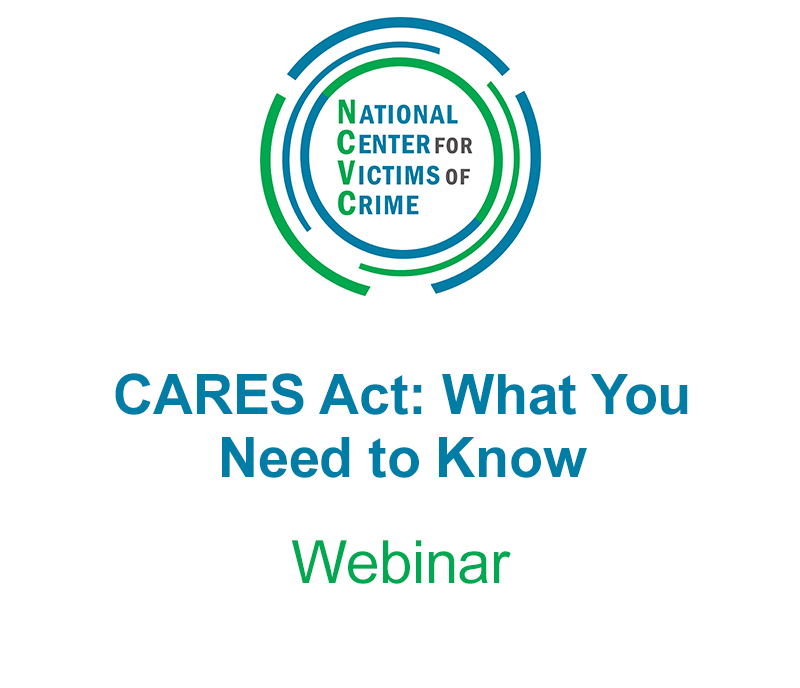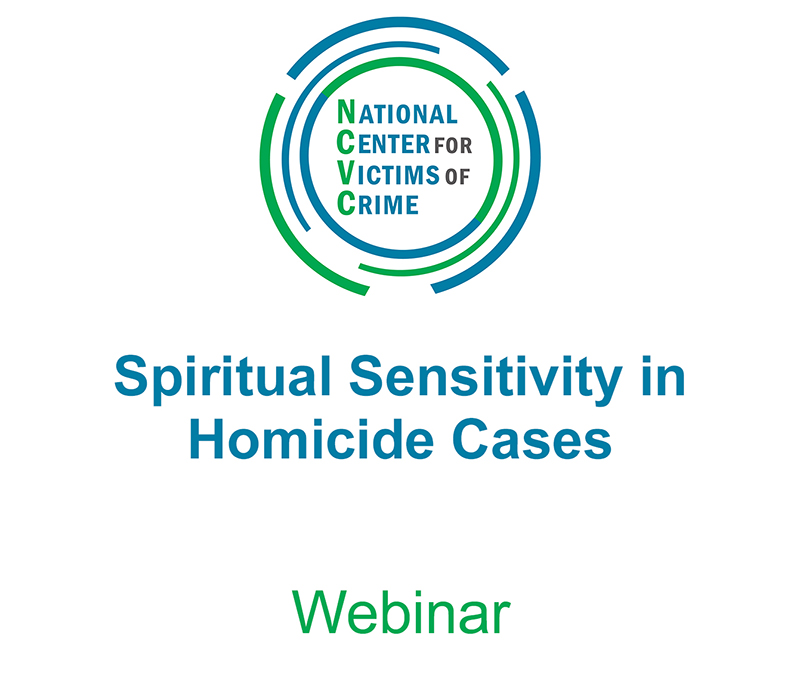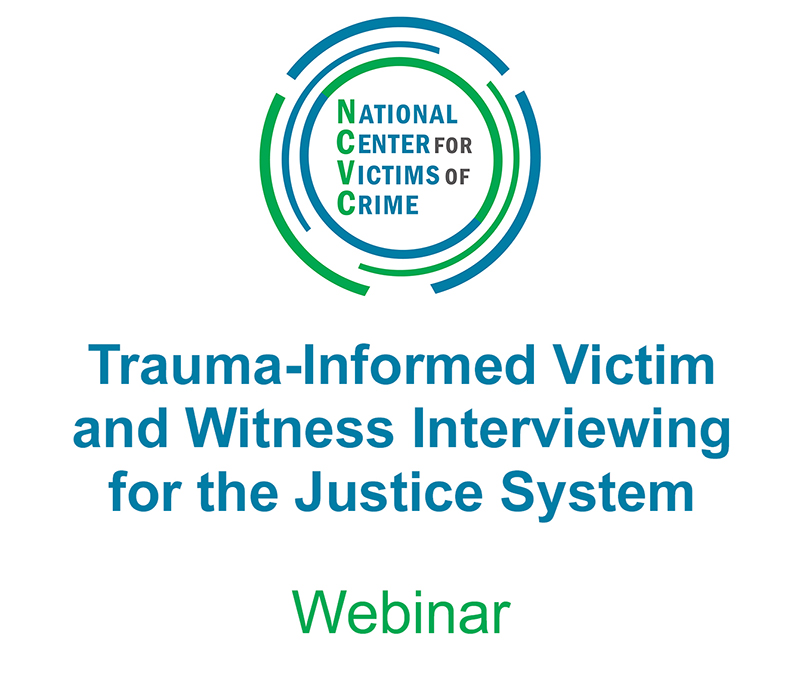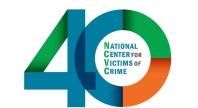Webinars
National Center Webinars
Ask an Expert Series: Applying for Your First Federal Grant
This webinar provides an overview of the federal grant application process. Presenters divide the steps into manageable actions, offering their insight and answering participant questions during this hour-long session. Based on the process to apply for Office for Victims of Crime human trafficking grants and funding, discussion topics include drafting a compelling application, avoiding common errors, finding funding solicitations, applying online, and fulfilling post award requirements.
Labor Trafficking 101: Learning the Basics
During this webinar, experts share information about potential indicators of labor trafficking, vulnerable industries, and a broad range of resources available to help organizations and tribes start, sustain, or grow their support services for victims of labor trafficking. Participant questions are answered live during the event. This webinar is part of the Ask an Expert Series sponsored by the Office for Victims of Crime, Human Trafficking Capacity Building Center.
Social Distancing and Financial Exploitation: the Impact on Older Adults
During the COVID-19 pandemic, social distancing has become an important component of public health. However, the isolation that results has implications for financial decision making, fraud vulnerability, and cognition among older adults. During this webinar, the expert panel discusses emerging research on these topics and steps you can take to further protect older adults who are targeted by scammers and perpetrators of fraud.
Implementing a Victim-centered, Trauma-informed Program for Survivors of Human Trafficking
During this webinar, three national experts share insight and answer questions on applying and enhancing policies and procedures centered on survivor safety, trust, choice, collaboration, and empowerment. The panel also discusses national standards and policies along with new strategies and resources for victim-centered, trauma-informed care. This is part of the Ask and Expert Series sponsored by the Office for Victims of Crime, Human Trafficking Capacity Building Center.
Parking in the Red Zone: Understanding Violent Crimes in Parking Lots
The Department of Justice’s tallies that more than 7% of all non-murder, violent victimizations occur in parking lots. This webinar examines some of the most important violent crimes of all types that occur in parking lots. For each example, there is discussion around how to prevent these crimes from occurring, how to spot risks that may help you protect yourself, and how victims can sometimes seek remedies.
Tribal Resource Tool: the Journey to Serve and to Expand Services to AI/AN Crime Victims Part 2
This two-part series provides a detailed overview of the Tribal Resource Tool. Presenters share the historical context, the tool development process, and the successes and challenges of managing the tool. Presenters also discuss the value and importance of collaboration between Tribal Resource Tool partners. This webinar also includes information regarding the data being compiled throughout the project for the gaps analysis, locations, services, and more.
Tribal Resource Tool, the Journey to serve and to Expand Services to AI/AN Crime Victims Part 1
This two-part series provides a detailed overview of the Tribal Resource Tool. Presenters share the historical context, the tool development process, and the successes and challenges of managing the tool. Presenters also discuss the value and importance of collaboration between Tribal Resource Tool partners. This webinar also includes information regarding the data being compiled throughout the project for the gaps analysis, locations, services, and more.
Telling the Whole Story: How Collecting Metrics Demonstrates Impact
The Cybercrime Support Network’s (CSN) mission is to improve the plight of Americans facing the ever-growing impact of cybercrime by bringing together national partners to support cybercrime victims. This webinar discusses the importance of collecting data, having standardized metrics, and how doing so is beneficial for the longevity of a program. Utilizing funds from the Department of Justice Office for Victims of Crime and the Victims of Crime Act, CSN has implemented a call/text/chat program to support cybercrime victims in several states utilizing the existing 211 national network — a toll-free, human services phone number and chat line supporting over 95 percent of Americans — as a reporting and triage line for victims of cybercrime.
Having Critical Conversations Through a Diverse Lens
Marginalized populations are among the most victimized groups in the U.S. As a result, they are at greater risk of experiencing mental health challenges associated with victimization including posttraumatic stress disorder, depression and substance abuse. This can be exacerbated when victim service providers lack diverse and inclusive awareness in the delivery of services. This webinar provides a basic framework for having conversations about diversity and provides an overview of challenges that various groups face in the aftermath of a crime.
Human Trafficking Capacity Building Center Webinar
Are you trying to start, sustain, or grow your anti-trafficking work? This webinar by the Human Trafficking Capacity Building Center discusses free coaching services and a new group being established to discuss funding strategies. Funded by the Office for Victims of Crime, U.S. Department of Justice, the Center provides free coaching services and helps organizations and tribes navigate the broad range of financial resources available to support anti-trafficking work.
Multidisciplinary Responses to Complex Homicide Cases
The National Center for Victims of Crime was a training and technical assistance provider for the Multidisciplinary Responses to Families and Communities in Complex Homicide Cases (Complex Homicide) project. This webinar provides an overview of resources available on the National Center’s TTA portal, many of which were created by the seven demonstration sites working on this project. The resources can be used by service providers who respond to homicide cases, as well as those looking to build or improve their multidisciplinary responses.
Victim Services During the Pandemic: Experiences of Grief and Loss
During this webinar, presenters examine the myriad losses and grief associated with the COVID-19 pandemic. Recognizing the spectrum of loss for victims and providers, presenters explore the range of losses, small to large. This presentation also discusses the disparities of impact across communities that affect both victims and providers. Panelists offer an in-depth look at grief in all of its complexity and share sustaining strategies to consider for yourself and your team.
Strange Fruit: The Sociocultural Embodiment of Homicide Violence
Homicide violence disproportionately impacts Black surviving family members and friends. This webinar provides a framework for understanding and addressing homicide violence and its impact on Black communities. The webinar also examines structural violence and the traumatic impact it has on individuals and communities and why it is critical to understand these complex factors in order to respond to victims’ needs in a culturally responsive manner.
Traumatic Grief Responses Through the Lens of Death Notification
This webinar examines traumatic grief and the many ways in which it is expressed. Death notification is used as a framework for this training, and real life examples of death notifications made by the Palm Beach County Sheriff’s Office are used. This webinar is intended to offer practical solutions for law enforcement and other victim serving providers and will be facilitated by a clinical social worker, a victim services advocate and two members of law enforcement.
Intersection Between Domestic Violence/Child Sexual Abuse and COVID-19
This webinar provides an overview of how COVID-19 impacts domestic violence and child sexual abuse victims. It also shares strategies advocates can use to assist victims of domestic violence during the pandemic. The webinar presented by Tamara Chapman-Wagner, the Deputy Director for the Division of Children and Family Services (DCFS) in Cuyahoga County, Ohio.
Coronavirus Scams: How Advocates Can Help
Scammers have a tendency to capitalize on current events to perpetrate fraud; the COVID-19 pandemic is no exception. Bad actors are preying on public fear surrounding the Coronavirus and creating scams to defraud victims. This webinar provides an overview of some of these scams, and shares strategies advocates can use to assist those targeted or victimized. This webinar is presented by three subject matter experts from the FINRA Investor Education Foundation, the Federal Trade Commission, and the Consumer Financial Protection Bureau.
CARES Act: What You Need to Know
This webinar focuses specifically on the Coronavirus Aid, Relief, and Economic Security Act (the CARES Act), which was passed by Congress on March 27, 2020. This legislation provides an economic relief plan for individuals and businesses, including nonprofits such as victim services organizations.
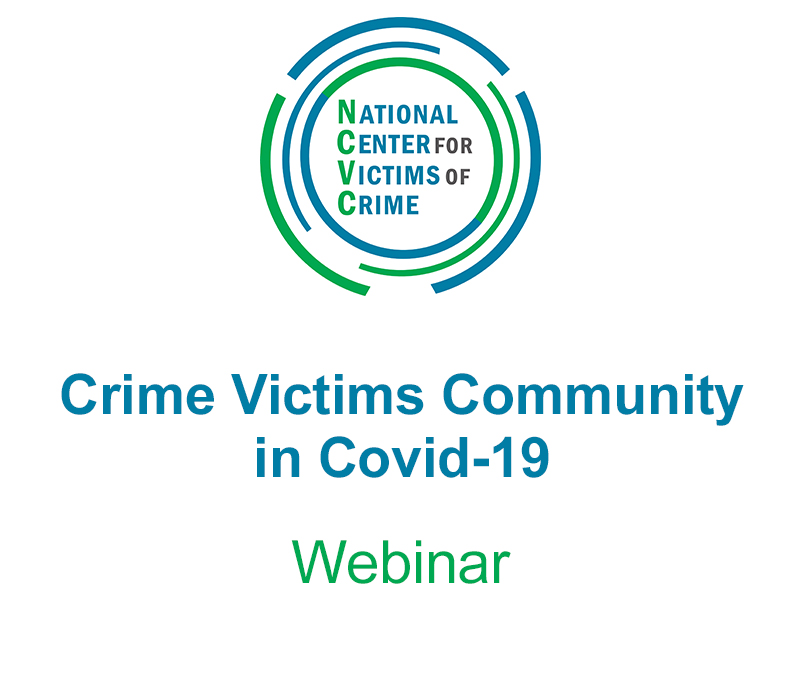
Covid-19
This webinar was produced as part of the National Center’s effort to support victim service providers and their advocates during COVID-19. The National Center for Victims of Crime created a Crime Victims Community in COVID-19 (CVCC) group, which includes a webinar series.
The Changing Face of Victim Services in Indian Country
Tribal victim service providers have been uniquely impacted by the COVID-9 pandemic. This webinar provides an overview of how COVID-19 impacts the accessibility and delivery of victim services in tribal communities, and shares some of the innovative strategies tribal victim services providers are using to continue their work.
Spiritual Sensitivity in Homicide Cases
This webinar explores religious death practices and rituals as they relate to the criminal justice system. Spirituality often becomes a relevant topic following homicides, even among those who claim no religious affiliation. Increasing cultural diversity is accompanied by religious diversity. Presenters provide guidance for victim advocates who are challenged to respond to victims in a spiritually sensitive and culturally competent way.
Restorative Retelling: Overview and Practical Application with Co-Victims of Homicide
Violent death causes specific grief for a victim’s family and loved ones. Restorative Retelling is a therapeutic group treatment strategy centered on the unique perspective of people experiencing the loss of a loved one due to violence. In this webinar, Ted Rynearson, MD, who developed the Restorative Retelling model, and Connie Saindon, the model’s first practitioner, share their success using Restorative Retelling with people grieving co-victims of homicide
Trauma-Informed Victim and Witness Interviewing for the Justice System
The effects of trauma can have a serious impact on victim and witness behavior during an interview. It is critical for interviewers to be familiar with the signs of trauma and to approach their interview in a way that is trauma-informed. Understanding the signs of trauma improves the quality of interview results and strengthens victim services. This webinar presents an interviewing strategy that incorporates the principles of the neurobiology of trauma. The presentation also includes practical skills and techniques for facilitating a trauma-informed interview.




